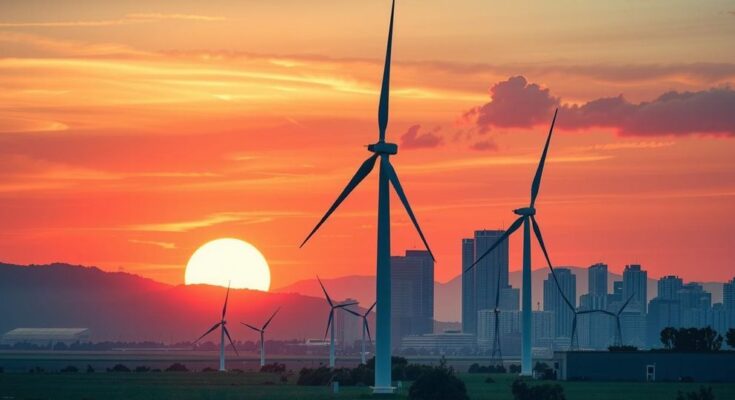Clean energy advocates are shifting their focus from purely environmental messages to highlighting economic advantages, including job creation and profit potential. In light of shifting political landscapes, industry leaders are lobbying to maintain crucial tax incentives, appealing to lawmakers’ economic interests rather than solely environmental concerns. Experts argue that emphasizing self-interest can yield meaningful progress in clean energy adoption.
In recent years, clean energy advocates have shifted their focus from environmental rhetoric to a more economically driven narrative emphasizing job creation and wealth generation. This change coincides with a political landscape marked by a resurgence of nationalism and the prioritization of economic interests. In a lobbying effort in Washington, clean energy leaders presented their sector as pivotal for a robust American economy, echoing terms like “American energy dominance,” popularized by the previous administration.
During a recent policy address in Brazil, U.N. climate chief Simon Stiell highlighted the vast financial investments pouring into clean energy initiatives. He noted the limitation of moral appeals in persuading audiences, citing a colleague’s advice that self-interest often drives decisions. Stiell underscored that a staggering $2 trillion is now being allocated to clean energy projects, emphasizing the economic opportunities they represent.
Previous arguments for clean energy have existed, yet a changing U.S. political environment renders these messages more impactful. Former Republican Congressman Bob Inglis emphasized the appeal of presenting clean energy as a profit-generating venture, attracting conservative audiences. He drew attention to Elon Musk’s ventures in electric vehicles and solar technology as exemplars of this profitable narrative.
Job creation has always been a cornerstone of promoting solar and wind energy, but now there is an intentional move to embrace self-interest as a legitimate selling point. Stiell described the financial momentum behind clean energy as “unstoppable” due to its substantial economic prospects. Academics like Princeton’s Michael Oppenheimer support the notion that catering to economic self-interest can aid in addressing the climate crisis.
Industry representatives recently undertook a significant lobbying initiative to protect critical tax incentives that support competitiveness for clean energy projects. This strategy targets lawmakers who may not prioritize climate change but could be persuaded by the economic benefits of clean energy. Jessie Stolark from the Carbon Capture Coalition expressed that a pragmatic approach is vital to engaging influential political figures.
Liz Beardsley of the U.S. Green Building Council also emphasized that economic considerations have long been integral to the clean energy dialogue. Lisa Sachs, of the Columbia Center on Sustainable Investment, noted that a candid approach regarding the economic case for clean energy is refreshing, despite acknowledging constraints in fully transitioning to a decarbonized economy without broader systemic support.
Experts argue that while direct appeals to environmental crises have yielded limited results, focusing on economic benefits may create more effective pathways for progress. With key power players accessible in the current administration, advocates believe they have an opportunity to drive meaningful change through economic arguments.
The article discusses the emerging narrative among clean energy advocates, who are increasingly framing their message around economic benefits rather than solely environmental stewardship. In the context of political changes, particularly during the Trump administration’s energy policies, clean energy leaders are attempting to adapt their outreach strategies to appeal to a broader audience, particularly conservatives. This shift highlights a growing realization that self-interest and economic incentive can be powerful motivators in adopting clean energy technologies and policies.
In conclusion, the clean energy sector is evolving its messaging strategy to emphasize financial benefits and job creation in response to changing political dynamics. This pragmatic approach seeks to align economic interests with environmental goals, appealing to a wider range of stakeholders, especially those traditionally skeptical of climate change. By framing clean energy as an opportunity for economic growth, advocates believe they can foster greater support for sustainable initiatives.
Original Source: www.washingtonpost.com




